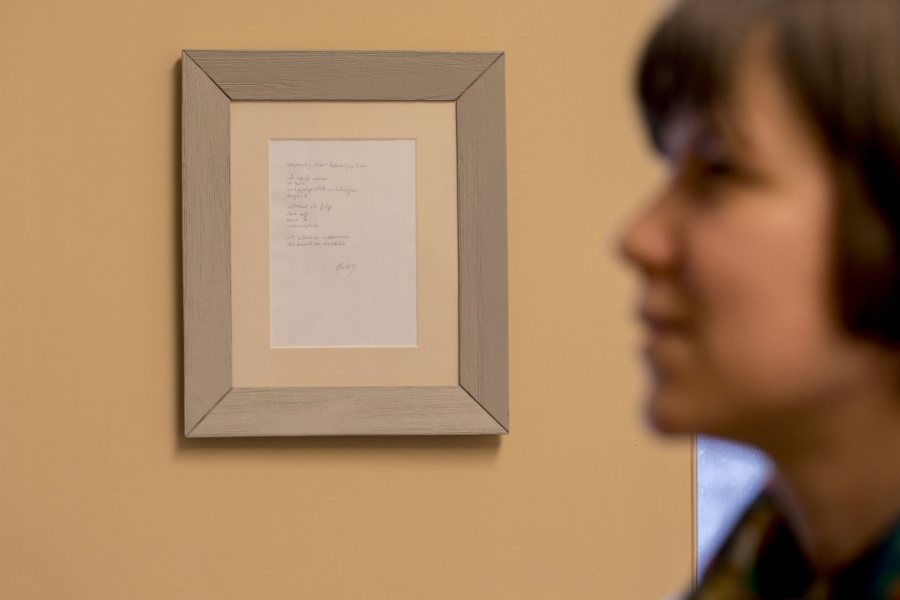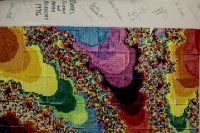
A copy of the poem “Monologue of a Tree Line” by Franz Hodjak, written in the poet’s own handwriting, hangs in the Roger Williams Hall office of Assistant Professor of German Raluca Cernahoschi.
It was a gift from her dissertation adviser, Peter Stenberg, who had persuaded her to “take a closer look” at Hodjak’s poetry.
“Writing a book about the post-war generation of Romanian-German poets — of which Hodjak is a part — was as close a look as I had imagined at the time,” Cernahoschi says. “But Peter’s gift is a reminder that closeness is subject to the chosen way of seeing.”
The poem:
i always run
in two
opposite directions
at once
while i follow
the path
i remain
immobile
i’ve completely mastered
the art of the dialectic
Cernahoschi had seen the poem in its printed version, in the volume Open Letters, where it “conversed” with the poems around it, she says. “I knew that the selection of poems in the volume reflected not only the artistic intentions of the poet but also the effects of censorship” of the era.
Cernahoschi says that the word “dialectic” in the last line is ironic. “In socialist Romania, the Marxist dialectic of historical progress, with the victory of the working class as its end, was a prized trope.”
In the poem, she says, “the dialectic of the tree-lined path points both forward and backward, however. While it nods to progress (‘while I follow the path’), it actually acknowledges standing still (‘i remain immobile’).”
Cernahoschi says she marvels at the poet’s audacious way of seeing, his ability to sneak “uncomfortable truths” past the censor onto the printed page.
Now, she says, she views the poem, isolated by itself in the frame on her wall, differently.
“Seeing clearly the jagged lines of m’s, l’s, f’s, and g’s has helped me discover a new friction in the poem, as if the writing itself were an opposition.”
In the poet’s signature, however, “the round stroke of the H and the finality of the y,” she says, offer a contrast: “Liberation. I can relate — writing is an activity that winds us tighter and tighter until that last stroke or push of the button that signals ‘done.'”
But, she concludes, “I also see past the framed poem to the trees lining the path outside my window, running in two directions at once, moving and immobile at once. Their dialectic is true no matter the prevailing ideology. Some days, it’s a precious reminder, on others, a warning.”





